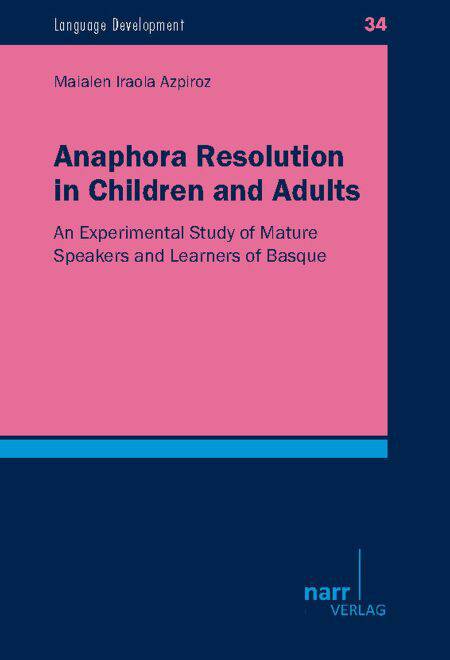
- Afhalen na 1 uur in een winkel met voorraad
- Gratis thuislevering in België vanaf € 30
- Ruim aanbod met 7 miljoen producten
- Afhalen na 1 uur in een winkel met voorraad
- Gratis thuislevering in België vanaf € 30
- Ruim aanbod met 7 miljoen producten
Zoeken
Anaphora Resolution in Children and Adults E-BOOK
An Experimental Study of Mature Speakers and Learners of Basque
Maialen Iraola Azpiroz
€ 38,40
+ 38 punten
Omschrijving
This work focuses on the comprehension of null and overt subject pronouns in intrasentential anaphora contexts in Basque, a language which employs overt referential devices that fall out of the scope of what traditionally counts as third person pronouns, namely the demonstrative hura 'that' and the quasipronoun bera '(s)he (him/herself)'. Data from native adults obtained from two experimental offline tasks on the referential properties and the discourse features of null and overt pronouns set a baseline for comparison with a) the i nsights reported in descriptive grammars and with b) developmental data from 6-8-year-old child L1 and child L2.
Specificaties
Betrokkenen
- Auteur(s):
- Uitgeverij:
Inhoud
- Aantal bladzijden:
- 181
- Taal:
- Engels
- Reeks:
Eigenschappen
- Productcode (EAN):
- 9783823379294
- Verschijningsdatum:
- 17/02/2015
- Uitvoering:
- E-book
- Beveiligd met:
- Digital watermarking
- Formaat:

Alleen bij Standaard Boekhandel
+ 38 punten op je klantenkaart van Standaard Boekhandel
Beoordelingen
We publiceren alleen reviews die voldoen aan de voorwaarden voor reviews. Bekijk onze voorwaarden voor reviews.







